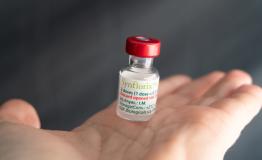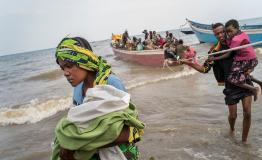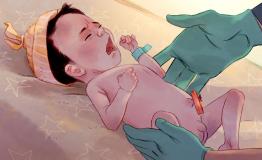Afghans faced the direct and indirect consequences of conflict, particularly in the first eight months of the year, when fighting reached major cities. As in previous years, many Doctors Without Borders (MSF) patients cited the risk of being caught up in the conflict as a reason to delay seeking healthcare.
There was an improvement in the security situation when the conflict ended, meaning people could travel more freely to reach medical care, but following the change in government, international donors decided to suspend the funding on which the health system relied. Many health facilities closed, and those that remained open were often barely functional, lacking staff and medical supplies.
Although temporary funding was provided towards the end of the year to keep the health system afloat, there was little sign of any meaningful improvement. Furthermore, sanctions against the new government caused a severe economic crisis that affected many aspects of people’s lives, including health. This, combined with the severe drought that hit the country in 2021, led us to see far more children with malnutrition in our feeding centres than in 2020.
Despite many challenges, including those posed by COVID-19, we kept all our projects running throughout the year. We also responded to outbreaks of acute watery diarrhoea in Kabul and Kandahar and donated medicines, fuel, food, oxygen and other supplies to health facilities.
Lashkar Gah
MSF supports the 300-bed Boost hospital in Lashkar Gah, Helmand province, offering a wide range of medical services, including maternal healthcare, paediatrics and surgery. In May 2021, the conflict escalated around the city, and in July and August, there was heavy fighting in the streets, which at times made it difficult for residents to reach the hospital. For 13 days, MSF staff could not leave the hospital compound, but as fighting raged around them, they continued to treat patients, including many war-wounded.
After the conflict ended in August and it became safer for people to leave their homes, we saw a huge rise in patient numbers. For the final four months of the year, the hospital was routinely functioning over capacity. In September, we recorded the highest numbers of assisted births and patients requiring emergency care since we first started supporting the hospital in 2009.
Kunduz
Fighting also reached the city of Kunduz, the site of our new trauma centre that was still under construction. In July, since the centre's construction was not yet complete, we transformed our office space into a 25-bed emergency trauma unit to care for those injured by the fighting. We also set up a temporary outpatient clinic and supplied safe drinking water for displaced people who had sought safety in nearby Sar Dawra. West of the city, in the Chardara district, we maintained our support for the stabilisation unit.
On 16 August, we opened the trauma centre, which has a 54-bed inpatient department, a six-bed intensive care unit (ICU), two operating theatres and an outpatient department, and transferred our activities there.
Herat
On the outskirts of Herat city, we run a clinic for internally displaced people, offering general consultations for children, including childhood vaccinations, nutritional care, and maternal health. This clinic was extremely busy after August, as many other organisations had left or had their funding suspended. This trend was also observed in our projects in Helmand and Khost.
Another MSF team works at the regional hospital in Herat city, managing an inpatient therapeutic feeding centre for children. Due to the high demand for care, we had to increase the facility’s bed capacity twice, reaching 74 beds by mid-October. Although patient numbers reduced slightly after a peak in September, they remained high, with children often sharing beds. We also started supporting the hospital’s paediatric emergency room and ICU in mid-December.
Our COVID-19 treatment centre in Herat remained open throughout the year, except for a few months between the second and third waves. In addition, we continuously triaged suspected COVID-19 cases at the regional hospital.
Kandahar
In Kandahar, MSF supports national tuberculosis (TB) programme in diagnosing and treating drug-resistant TB (DR-TB). In April, we moved our activities from the container clinic we had been using to our new 24-bed DR-TB inpatient facility. When the fighting reached Kandahar city in July, we adapted the programme by giving patients extra medication stocks and conducting remote consultations to ensure they could continue their treatment without visiting the facility. A team was also treating TB patients in Sarpoza prison until it became unsafe to travel there because of the conflict.
When fighting around Kandahar displaced many people from their homes, we set up a temporary clinic for children under five in an informal settlement where 5,000 people lived. For four weeks in September, a mobile clinic was sent to Spin Boldak, on the border with Pakistan, to assist displaced people living nearby or attempting to cross the border.
In mid-December, the team opened an outpatient therapeutic feeding centre in Kandahar city.
Khost
In Khost, we run a dedicated hospital providing maternal and neonatal care. The hospital has a 60-bed maternity unit, a 28-bed neonatal unit and two operating theatres. The maternity unit usually focuses on complicated deliveries, but we expanded our admission criteria from August until December to enable more women to give birth safely.
In 2021, we also supported eight local health centres across the province, providing medicines and funding for additional midwives so that women with no risk factors for obstetric complications could give birth closer to home, and donated medicines and other supplies to the provincial hospital.











